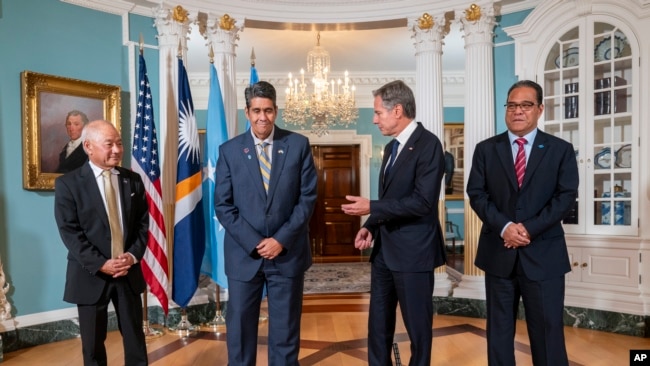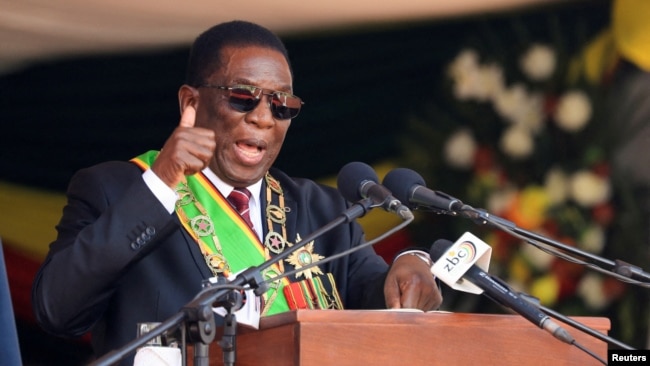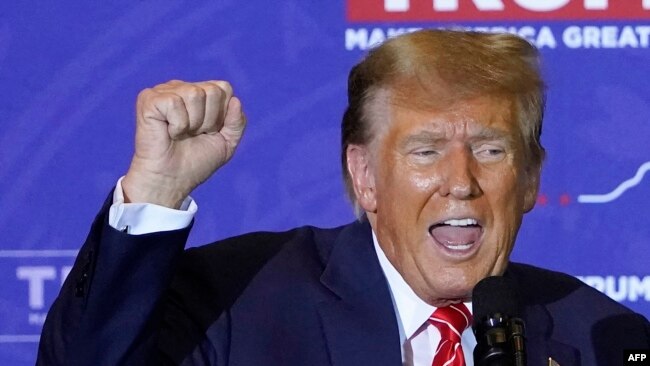글로벌 최소 세금 협상은 무엇이며 무엇을 의미할까요?
What Is the Global Minimum Tax Deal and What Will It Mean?
페이지 정보
작성자 Reuters 작성일 21-10-09 17:38 댓글 0본문

파일 - 경제협력개발기구 본부는 2017년 6월 7일 파리에 있습니다. 거의 140개국이 다국적 기업들의 세금 부과 규모를 바꾸기 위한 잠정적인 거래에 합의했습니다.
FILE - The Organization for Economic Cooperation and Development headquarters is pictured in Paris, June 7, 2017. Nearly 140 countries have agreed on a tentative deal to change how big, multinational companies are taxed.
파리입니다.
PARIS —
대기업이 15%의 최저 세율을 납부하고 조세 회피가 더 어려워지도록 하는 글로벌 협정이 136개국에 의해 합의되었다고 금요일 경제협력개발기구(OECD)가 발표했습니다.
A global deal to ensure big companies pay a minimum tax rate of 15% and make it harder for them to avoid taxation has been agreed upon by 136 countries, the Organization for Economic Cooperation and Development said Friday.
OECD는 케냐, 나이지리아, 파키스탄, 스리랑카 등 4개국이 아직 이 협정에 가입하지 않았지만, 이 협정의 배후에 있는 국가들이 세계 경제의 90퍼센트 이상을 차지했다고 말했습니다.
The OECD said four countries — Kenya, Nigeria, Pakistan and Sri Lanka — had not yet joined the agreement, but that the countries behind the accord together accounted for over 90% of the global economy.
협정의 요점은 다음과 같습니다.
Here are the main points of the accord:
왜 글로벌 최소 세금일까요?
Why a global minimum tax?
COVID-19 위기 이후 예산이 빡빡해짐에 따라, 많은 정부들은 다국적 기업이 매출 위치에 관계없이 수익과 세수를 저세금으로 이전하는 것을 그 어느 때보다 억제하기를 바라고 있습니다.
With budgets strained after the COVID-19 crisis, many governments want more than ever to discourage multinationals from shifting profits — and tax revenues — to low-tax countries regardless of where their sales are made.
의약품 특허, 소프트웨어, 지적 재산권 로열티 등과 같은 무형 자원의 수입이 이러한 관할 지역으로 이전되어 기업들이 전통적인 본국에서 더 높은 세금을 내는 것을 피할 수 있게 되었습니다.
Increasingly, income from intangible sources such as drug patents, software and royalties on intellectual property has migrated to these jurisdictions, allowing companies to avoid paying higher taxes in their traditional home countries.
최소세액 및 기타 규정은 외국인 투자 유치를 위한 정부간 수십년간의 조세경쟁을 종식시키는 것을 목표로 합니다.
The minimum tax and other provisions aim to end decades of tax competition between governments to attract foreign investment.
거래는 어떻게 될까요?
How would a deal work?
글로벌 최저 세율은 7억 5천만 유로(8억 6천 8백만 달러)의 매출을 올린 다국적 기업의 해외 이익에 적용됩니다.
The global minimum tax rate would apply to overseas profits of multinational firms with 750 million euros ($868 million) in sales globally.
정부는 여전히 그들이 원하는 지방 법인세율을 정할 수 있지만, 만약 기업들이 특정 국가에서 더 낮은 세율을 지불한다면, 그들의 본국 정부는 그들의 세금을 최소 15%까지 "보충"하여 이윤 이동의 이점을 없앨 수 있습니다.
Governments could still set whatever local corporate tax rate they want, but if companies pay lower rates in a particular country, their home governments could "top up" their taxes to the 15% minimum, eliminating the advantage of shifting profits.
개편의 두 번째 트랙을 통해 수입액이 가장 큰 다국적 기업의 소위 초과 이익(수입의 10%를 초과하는 이익)의 25%에 세금을 부과할 수 있습니다.
A second track of the overhaul would allow countries where revenues are earned to tax 25% of the largest multinationals' so-called excess profit — defined as profit in excess of 10% of revenue.
다음에는 어떻게 되죠?
What happens next?
기술적 세부 사항에 대한 금요일 합의에 따라, 다음 단계는 G20 경제 강국의 재무 장관들이 이 협정을 공식적으로 승인함으로써, 이달 말 G-20 정상들이 채택할 수 있는 길을 열어주는 것입니다.
Following Friday's agreement on the technical details, the next step is for finance ministers from the Group of 20 economic powers to formally endorse the deal, paving the way for adoption by G-20 leaders at a summit at the end of this month.
그럼에도 바이든 행정부가 미 의회를 통과하고자 하는 국내 세제 개혁에 부분적으로 달려 있는 미국의 입장에 대해서는 의문이 남습니다.
Nonetheless, questions remain about the U.S. position, which hangs in part on a domestic tax reform the Biden administration wants to push through the U.S. Congress.
협약은 이전의 국제 조세 협정이 이행되기까지 수년이 걸렸다는 점을 감안할 때 극히 촉박한 시기인 2023년까지 발효될 수 있도록 2022년부터 시행하도록 하고 있습니다.
The agreement calls for countries to bring it into law in 2022 so that it can take effect by 2023, an extremely tight timeframe given that previous international tax deals took years to implement.
최근 몇 년간 국가 디지털 서비스세를 신설한 국가는 이를 폐지해야 합니다.
Countries that have in recent years created national digital services taxes will have to repeal them.
경제적 영향은 어떻게 될까요?
What will be the economic impact?
협상을 주도해온 OECD는 최저 세금은 연간 1,500억 달러의 추가 세계 세수를 창출할 것으로 추산하고 있습니다.
The OECD, which has steered the negotiations, estimates the minimum tax will generate $150 billion in additional global tax revenues annually.
1,250억 달러 이상의 이익에 대한 과세권은 현재 예약된 저과세 국가에서 벌어들인 경우 추가로 이전됩니다.
Taxing rights on more than $125 billion of profit will be additionally shifted to the countries were they are earned from the low tax countries where they are currently booked.
경제학자들은 이 협정이 다국적 기업들의 본국으로의 자금 송환을 장려하여 이들 경제에 활력을 불어넣을 것으로 기대하고 있습니다.
Economists expect that the deal will encourage multinationals to repatriate capital to their country of headquarters, giving a boost to those economies.
그러나, 많은 미국 그룹들이 유럽 사업을 기반으로 하는 아일랜드와 같은 저과세 국가에 미치는 영향을 제한하기 위한 다양한 공제 및 예외조항이 동시에 시행되고 있습니다.
However, various deductions and exceptions baked into the deal are at the same time designed to limit the impact on low tax countries like Ireland, where many U.S. groups base their European operations.
출처 : VOANews
댓글목록 0
등록된 댓글이 없습니다.

















